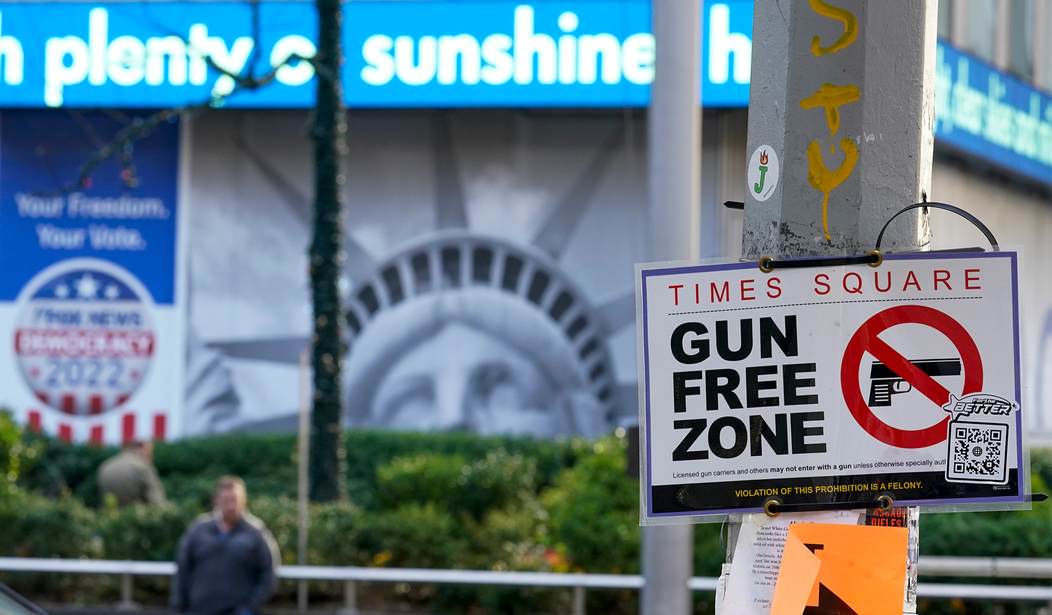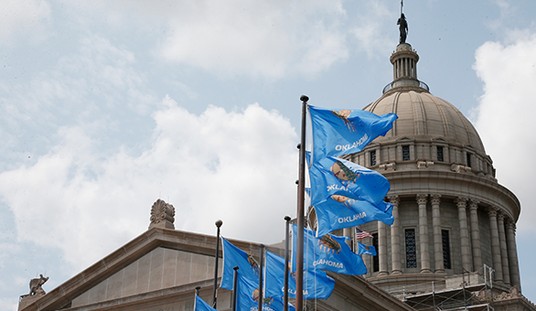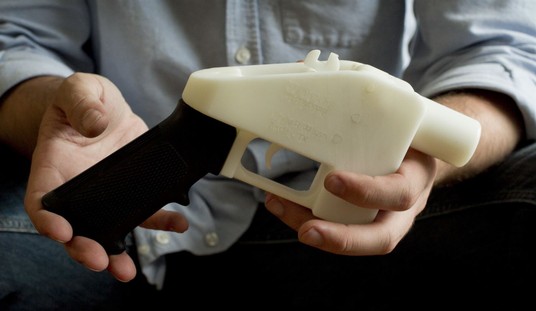The federal judiciary taketh away, the federal judiciary giveth… at least for the moment.
On Monday afternoon, the Second Circuit Court of Appeals lifted District Judge John Sinatra, Jr’s injunction that had blocked portions of New York’s Concealed Carry “Improvement” Act dealing with the many “gun-free zones” created by the anti-gun legislation; the second time over the past week or so that the Second Circuit has stepped in and allowed the state to resume enforcement of many of the challenged provisions in the CCIA.
New York’s new gun law remains intact, at least temporarily, after a federal appeals court on Monday paused a lower court’s ruling blocking a key section of the law that bans firearms in parks, in public transit systems and on private property, without the property owner’s permission.
The stay, by a three-judge panel of the U.S. Court of Appeals for the Second Circuit, is the third such order issued this month by the panel, as it considers constitutional challenges to the New York legislation.
…
Last week, the same three judges — one appointed to the Second Circuit by Mr. Trump, one appointed by President Bill Clinton and one appointed by President George W. Bush — issued similar stays after appeals by Ms. James in two other suits challenging the new gun law.
One of those suits specifically challenges the prohibition on guns in houses of worship. Judge Sinatra ruled in favor of the plaintiffs in that case as well. The other suit challenges the entire law. Presiding in that case, Judge Glenn T. Suddaby, a Bush appointee, ruled in October that much of the law was unconstitutional, including the “sensitive” places provision.
The three-judge panel didn’t elaborate on their decision to halt Sinatra’s injunction in the brief court order issued Monday afternoon, so it’s hard to get an idea of why the appeals court sided with New York here. In Sinatra’s decision granting the injunction, on the other hand, the federal judge went to great lengths to explain why New York’s default concealed carry ban on all private property wasn’t likely to withstand a court challenge. In Sinatra’s view, the new statute put in place after the Supreme Court’s decision in Bruen flies in the face of the “text, history, and tradition” test laid out by SCOTUS in that case.
The state also argues that private property owners have always had the right to exclude others from their property and, as such, may exclude those carrying concealed handguns. But that right has always been one belonging to the property owner – not to the State. It is the property owner who must exercise that right, not the State. If a property owner wants to exclude, then (1) the property owner must (2) do so. When the State does so it runs afoul of the Second Amendment.
The State posits that a self-governing society may choose one of two default rules, namely, that carrying on private property is (a) generally permitted absent the owner’s prohibition, or (b) never permitted unless the owner affirmatively assents. Maybe so. But the scope of the right codified in the Second Amendment demonstrates that this society – this nation – has historically had the former default arrangement. The latter proposed default was not a part of any historical tradition to the contrary, and did not form a limitation of the scope of the right so codified in the Bill of Rights. Instead, the State’s current policy preference is one that, because of the interest balancing already struck by the People and enshrined in the Second Amendment, is no longer on the table.
Given the Second Circuit’s previous hostility towards the right to keep and bear arms, I can’t say I’m surprised by the court’s decision, but that doesn’t make it any less frustrating, especially for the hundreds of thousands of New Yorkers who are either trying to exercise their right to bear arms for the first time in their lives or have seen their existing ability to carry extensively curtailed thanks to the state’s post-Bruen restrictions on lawful gun owners.
Of course, this case (and half-dozen or so other lawsuits filed against New York’s CCIA) is far from over, and I continue to believe that SCOTUS isn’t going to look too kindly on New York’s latest infringements on the Second Amendment rights of residents when they get another opportunity to weigh in. When that will be is still an open question, however, and for now New Yorkers (at least the law-abiding ones) are forced to live under a regime that views their fundamental right to self-defense as a wrong that must be curtailed and criminalized as much as the courts will allow.









Join the conversation as a VIP Member